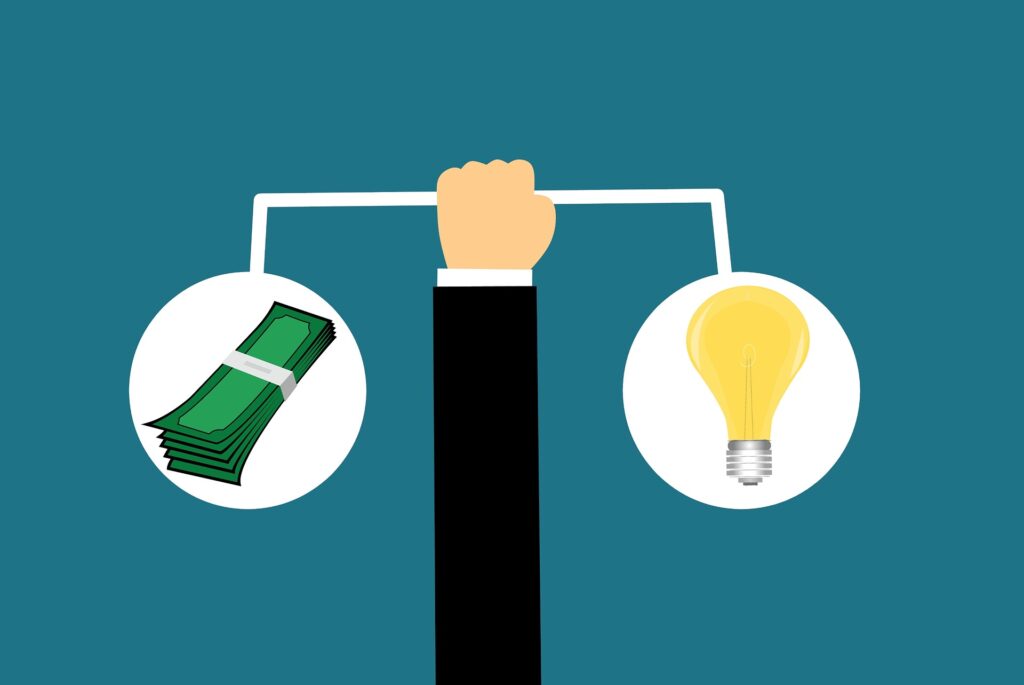
Mediation is a form of alternative dispute resolution, i.e., resolving your lawsuit outside of the court system without having to go to trial. For comparison, arbitration is also a form of alternative dispute resolution. In both situations, the merits of the lawsuit are heard by a neutral mediator or arbitrator outside of a court setting. However, arbitration results in a binding, court-enforceable decision by the arbitrator where as settlement only occurs in mediation by agreement of all parties. As well, arbitrators are often pre-selected where as mediators are mutually agreed upon by all parties. There are several reasons why you should mediate your lawsuit, here are our top five (5):
1 — COST EFFECTIVE
Mediation itself is relatively cheap in comparison to the overall costs of a lawsuit. The costs of mediation are typically shared by all parties, this lowers the cost by half or more. A mutually agreed upon mediator is selected by the parties, the fees depend on each particular mediator, $1,500 to $3,000 per side is an average range.
Mediations typically occur towards the end of the discovery phase, sometimes before experts are even hired. It makes sense to mediate at this point in time of the lawsuit because litigation costs and expenses tend to skyrocket once experts are hired and trial preparation begins. Expert witnesses demand a high hourly fee, once they are retained and start working on the case litigation costs immediately increase. Trial preparation, including deposing and defending expert witnesses, creating trial demonstratives, cutting deposition video, and countless other things will also increase case costs substantially. At the trial itself, the court reporter, trial transcripts, trial technician, expert testimony and many other expenses will also increase litigation costs. Thus, mediation avoids these potential costs by settling before they are incurred.
2 — FASTER RESOLUTION
The process of a lawsuit is often a long and filled with uncertainty. Getting to trial can sometimes take years. Mediation resolves both the time aspect and uncertainty of litigation. Once a mediator is selected and a mediation date is picked, parties may submit a confidential mediation brief to the mediator, outlining the evidence and merits of their case. On the day of mediation, opposing parties are segregated in their own rooms while the mediator goes between each room to try and resolve the matter. If all parties can decide on a settlement agreement, a mediator’s proposal is executed by all parties at this time. The entire mediation process typically lasts one business day. Usually an insurance company is writing the settlement check, this can take two (2) to four (4) weeks before the check is finally issued to the attorney. Disbursement of funds to the client occurs shortly after that, once all costs and liens are resolved.
Thus, once a successful mediation occurs, you can expect the case to be resolved and to have received settlement proceeds within a few months. (Note: If the settlement involves a minor or an incompetent adult, then the settlement will require approval by the probate court, taking additional time for final settlement and resolution.)
3 — FINALITY

Mediation avoids all of these uncertainties because a successful mediation effectively ends a lawsuit. Neither party admits fault through the settlement and the settlement terms are confidential. Once settlement proceeds are received, a dismissal of the lawsuit is filed, formally ending the lawsuit.
4 — GUARANTEED RECOVERY
The very nature of trial is that the outcome is unknown. Attorneys mitigate this by only taking on cases that are “worth” litigating and have a high chance of success or expected value. The skill of an attorney also dictates how well he can convince a jury to find for his client and award a judgment. However, a jury trial is still decided by twelve (12) strangers who ultimately decide the outcome of your case. Juries may unknowingly hold biases despite an attorneys best efforts to select a neutral, unbiased jury. Even the best case has the possibility to end in a loss, the only way to guarantee recovery is by settling your case. Mediation is a great, effective tool to achieve this goal.
5 — LARGER POTENTIAL NET RECOVERY
The amount of monetary compensation awarded by a jury and the amount of one can actually collect are two often times wildly varying numbers. A large verdict means nothing to an injured plaintiff if there is no way for her to collect the money needed to treat those injuries. For example, many cases involve a clearly liable, bad-acting defendant who has no money, and another defendant with less degree of liability who is insured. The legal fight will often be on the liability of the defendant who can pay. The insurance maximum and whether the policy is open also dictates what one may net. Finally, the contributory negligence of the plaintiff ,if any, may further reduce her net recovery at trial. Even if the amount offered at mediation is less than one could potentially gross at trial, you still may net more by settling at mediation because of cost considerations, appeals and the ability of the defendant to pay. For a more in depth discussion of case evaluation, click here: “What is my case worth?”
DISCLAIMER: The content above is entirely the opinion of Pan Law Group, Inc. and should in no way be considered legal advice. Please contact us for a free legal consultation if you have any questions. Thank you.





